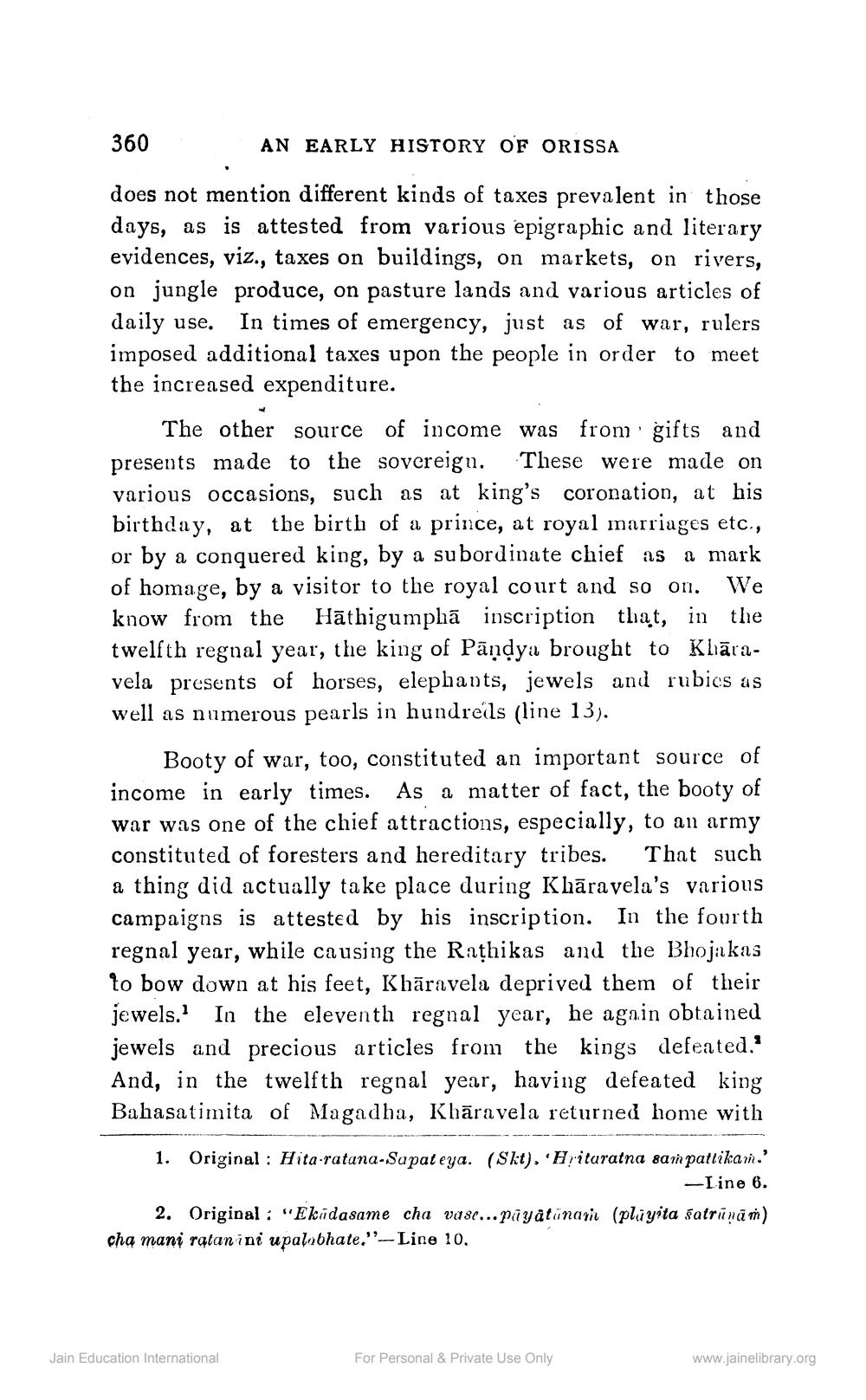________________
360
AN EARLY HISTORY OF ORISSA
does not mention different kinds of taxes prevalent in those days, as is attested from various epigraphic and literary evidences, viz., taxes on buildings, on markets, on rivers, on jungle produce, on pasture lands and various articles of daily use. In times of emergency, just as of war, rulers imposed additional taxes upon the people in order to meet the increased expenditure.
The other source of income was from gifts and presents made to the sovereign. These were made on various occasions, such as at king's coronation, at his birthday, at the birth of a prince, at royal marriages etc., or by a conquered king, by a subordinate chief as a mark of homage, by a visitor to the royal court and so on. We know from the Hāthigumphā inscription that, in the twelfth regnal year, the king of Pāndya brought to Khāravela presents of horses, elephants, jewels and rubics as well as numerous pearls in hundreds (line 13).
Booty of war, too, constituted an important source of income in early times. As a matter of fact, the booty of war was one of the chief attractions, especially, to an army constituted of foresters and hereditary tribes. That such a thing did actually take place during Klāravela's various campaigns is attested by his inscription. In the fourth regnal year, while causing the Rathikas and the Bhojakas to bow down at his feet, Khāravela deprived them of their jewels. In the eleventh regnal year, he again obtained jewels and precious articles from the kings defeated.' And, in the twelfth regnal year, having defeated king Bahasatimita of Magadha, Khāravela returned home with
1. Original : Hita-ratana-Sapat eya. (Skt). Hrituratna sam pattikam.'
-Line 6. 2. Original : "Ekādasame cha vase... piyatunari (playita satrūnām) cha mani ratanini upalabhate."'-Line 10.
Jain Education International
For Personal & Private Use Only
www.jainelibrary.org




